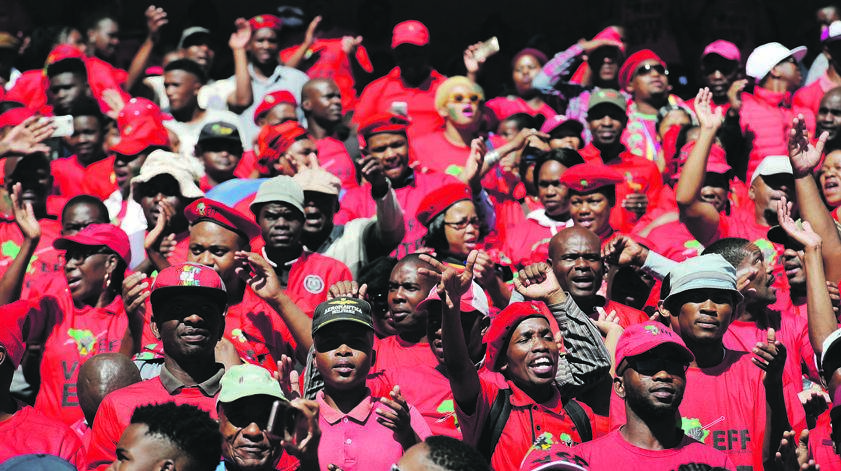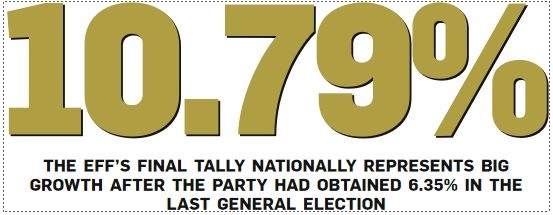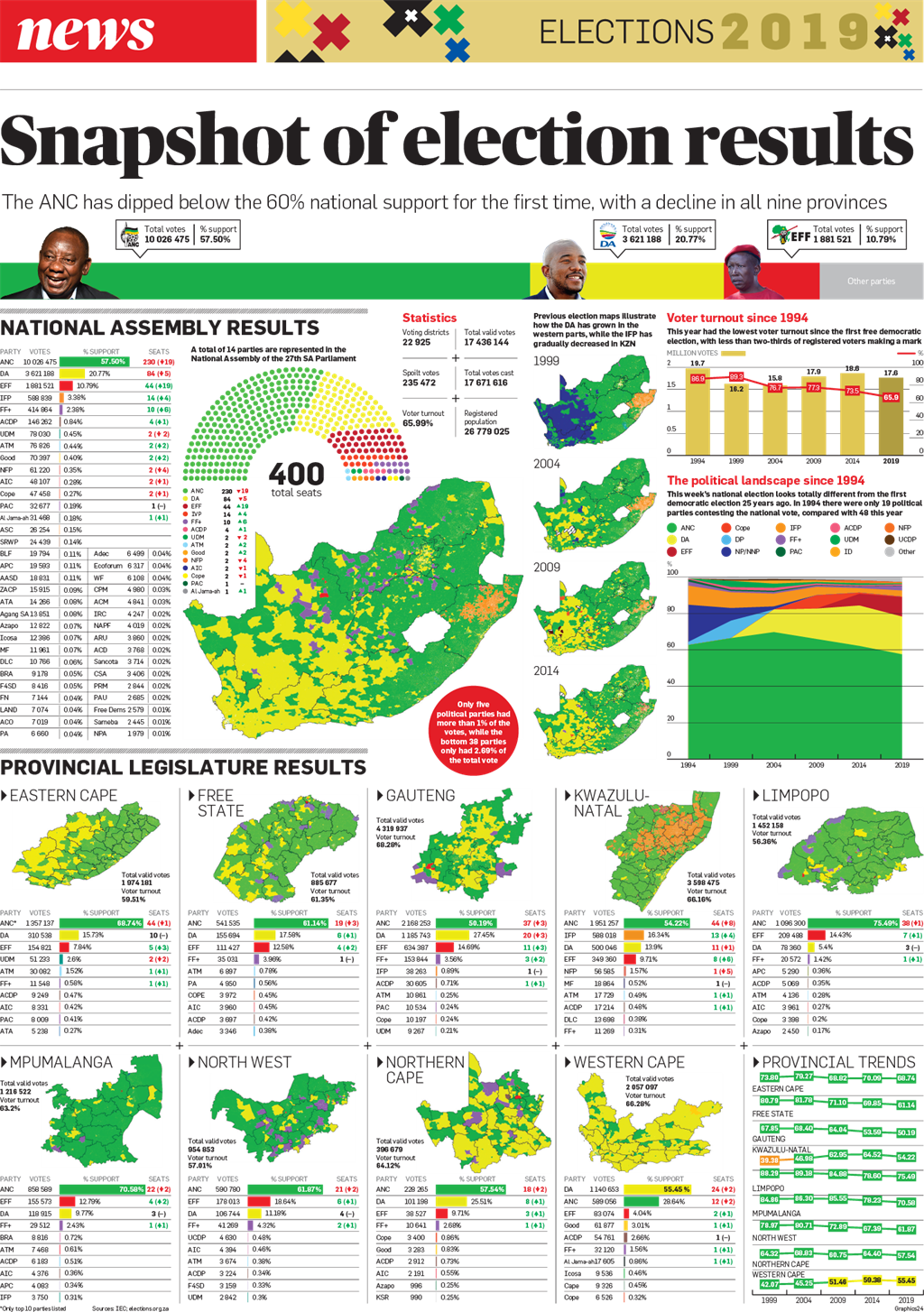
The EFF is without a doubt the biggest winner to step out of this week’s polls, which were a bloody arena for the governing party and the official opposition.
The party’s second national general elections saw the fighters walk off with a bounty of increased support across all provinces with the additional bonus of official opposition status in Mpumalanga. In the EFF’s maiden election it managed to become the second-highest ranking party in Limpopo and the North West.
The cherry on top would have been reaching the 2 million voter mark nationally but the party hovered just below at 1 900 000, an increase of around 700 000 votes from 2014. In the Congress of the People’s maiden rally – it was believed that the EFF would follow the same fate as the ANC breakaway – the party achieved about 1.3 million votes.
Read: Why the ANC dropped by 10% in KZN
This figure fell to 123 235 votes in 2014 and further to 47 367 this week.
EFF leader Julius Malema formed the EFF after being given his marching orders from the ANC by chairperson of the national disciplinary committee Derek Hanekom, which was upheld by Cyril Ramaphosa, then chairperson of the appeal committee.
The EFF participated in general elections for the first time in 2014 and held its first elective congress in the same year. The party made its mark in August 2014 when it famously called on former president Jacob Zuma to “pay back the money”, leading to the serjeant at arms being called in by speaker Baleka Mbete to remove EFF MPs from the National Assembly.
Having performed dismally in the coastal provinces of KwaZulu-Natal, the Eastern Cape and the Western Cape, the party opted to disband the provincial structures, replacing them initially with task teams headed by senior national leaders.
The worst-performing of the three provinces was the then ANC stronghold of KwaZulu-Natal. In 2014 the ANC in that province garnered about 65% of the vote, while the EFF got just 1.85%. In 2017 members Reneiloe Mashabela, Mbuyiseni Ndlozi and Marshall Dlamini were sent to the province to help establish structures and grow the footprint of the party. Victories at institutions of higher learning in the province bolstered the party’s fortunes at least from a visibility perspective. This week’s final tally of KwaZulu-Natal places put the EFF at 9.71%, with an increase of 278 537 votes.
Similarly, though not as radical, in the Eastern Cape the party has grown by about 3% and in the Western Cape by about 2%.
At the Independent Electoral Commission’s national results centre on Thursday evening, with just the Gauteng results outstanding, Ndlozi told City Press the party knew that it had to penetrate the rural space to give it credibility and longevity.
Read: The DA let them down and the voters came to us, says the FF+
“There were two important things for us, devolve the EFF into rural areas and the test of that would be these elections and whatever happens we retain what we got in 2014 and grow. In my anticipation we will be in a good majority position in 10 years from now. So we are likely to win the 2029 elections,” Ndlozi said.
“The results are the best material sign that the EFF has a truly and genuine national footprint. It has done the impossible; grow in all corners of South Africa and it grew by more than 70%. This is historic. Yet, just the beginning.”
In between 2014 and this year, while failing to constitute any governments of its own during the 2016 local government elections, the EFF achieved kingmaker status in the metropolitan municipalities of Tshwane and Johannesburg and to a lesser extent in Nelson Mandela Bay.
The party’s offering to the electorate this year came in the form of boasting about its role in the landmark Nkandla Constitutional Court ruling, the removal of the ANC from three metros and, most recently, putting enough pressure on the ANC to get the process of amending section 25 of the Constitution under way in Parliament.
Voters seem undeterred by allegations of financial mismanagement first made by then EFF MPs Khanyisile Litchfield Tshabalala, Mpho Ramakatsa and Andile Mngxitama in 2015. None of these allegations held water in the end. Last year the brother of deputy president Floyd Shivambu was implicated in benefiting from money from the VBS bank, with some reports alleging that this money was channelled to the party. Most recently, in the weeks leading up to this election, two MPs resigned from the party also making claims – though they were unable to prove any of them – of financial mismanagement by the party’s top brass.
In six months’ time the party will face another test in the form of its second elective congress scheduled to take place in December.
 |
| ||||||||||||
| |||||||||||||




 Publications
Publications
 Partners
Partners









